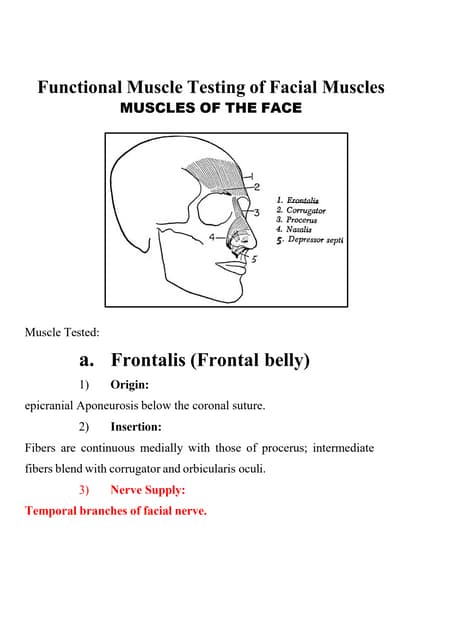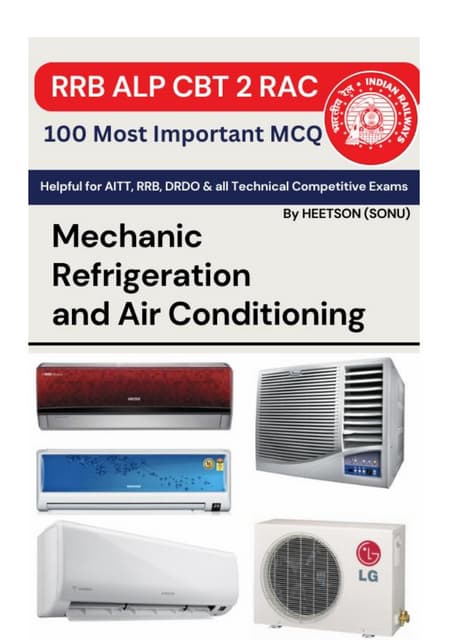Wcpa
Download as PPTX, PDF0 likes82 views
WCPA is the World Commission on Protected Areas, which is administered by IUCN's Global Programme on Protected Areas. It is the world's premier network of protected area expertise with 2500 members spanning 140 countries. WCPA provides strategic advice to policy makers, strengthens capacity and investment in protected areas, and convenes stakeholders to address challenges. Its mission is to promote a representative, effectively managed, and equitably governed global system of protected areas through generating knowledge and implementing IUCN's three programme areas of valuing nature, governance, and nature-based solutions.
1 of 22
Download to read offline






















Recommended
United Nations Environment Program (UNEP)- Arifuzzaman Arif



United Nations Environment Program (UNEP)- Arifuzzaman ArifMd. Arifuzzaman Arif
╠²
The United Nations Environment Program (UNEP) is the leading global environmental authority that was established in 1972. UNEP is headquartered in Nairobi, Kenya and coordinates environmental activities and assists developing countries in implementing environmentally sound policies. UNEP's mission is to provide leadership on environmental issues and encourage partnerships to improve quality of life without compromising future generations. UNEP's main activities include addressing climate change, disasters, ecosystems, environmental governance, harmful substances, and resource efficiency.United nations environment programme



United nations environment programmemeenee
╠²
The United Nations Environment Programme (UNEP) is the UN body responsible for environmental issues and was established in 1972. UNEP coordinates environmental activities across the UN and assists countries in implementing environmentally sound policies. It is headquartered in Nairobi, Kenya and covers issues regarding the atmosphere, ecosystems, environmental governance, and green economy. UNEP also established the Intergovernmental Panel on Climate Change and works on numerous environmental projects and reports worldwide.UNEP



UNEPpranav ghangare
╠²
UNEP coordinates environmental activities across the United Nations. It aims to provide leadership and encourage partnerships to improve quality of life without compromising future generations. UNEP was founded in 1972 and is headquartered in Nairobi, Kenya. Its activities include assessing environmental conditions, developing agreements, strengthening environmental management, and facilitating knowledge sharing for sustainable development.What are multilateral environmental agreements



What are multilateral environmental agreementsSona Pari
╠²
Multilateral environmental agreements (MEAs) are international treaties that aim to protect the environment through cooperation between countries. MEAs address major issues like biodiversity, climate change, pollution, and land degradation. Key MEAs were established after the 1972 Stockholm Conference and 1992 Rio Earth Summit to integrate environmental protection with development. MEAs are implemented through national laws and policies to change behaviors contributing to environmental problems. Pakistan has ratified several major MEAs and is working to better educate the public and coordinate implementing agencies to meet its international commitments.UNEP ENV LAW PRESENTATION



UNEP ENV LAW PRESENTATIONvirgo_az
╠²
The United Nations Environment Programme (UNEP) coordinates the United Nations' environmental activities and assists countries in implementing environmentally sound policies. UNEP works to assess environmental conditions, develop international agreements, strengthen environmental management institutions, and address issues like climate change, chemicals and waste, ecosystems, disasters and conflicts, and environmental governance through various programs and partnerships. It has regional offices and publishes reports on global environmental issues to inform policymakers.RJohnson Overview of UI Partnership Climate Mitigation



RJohnson Overview of UI Partnership Climate Mitigationbeccane
╠²
This document outlines a partnership between the University of Indonesia and Columbia University to establish a Research Center for Climate Change. The center aims to build capacity in Indonesia to mitigate climate change through reducing emissions from deforestation and forest degradation. It will provide academic programs, professional development, and societal outreach on topics like forest carbon credits and innovative methods to reduce forest loss. The goal is to prepare Indonesian society to limit emissions, protect forests and livelihoods, and conserve biodiversity.laws for Genetic resources and conservation



laws for Genetic resources and conservationAhmadHussain93
╠²
This document summarizes several international law making bodies and organizations for genetic conservation, including their objectives and strategies. The IUCN, established in 1948, brings together 83 states and over 1400 organizations to focus on expanding protected areas and marine habitat protection. The UNEP, founded in 1972 with 193 member countries, implements environmentally sound policies. The WWF, founded in 1961 with over 5 million supporters in 100+ countries, works to stop environmental degradation and ensure sustainable resource use. The GEF, founded in 1992 and including 183 member countries, conserves biodiversity through over 4,700 projects. Overall management strategies emphasized by these groups include ecological restoration, reforestation, education, and regulations around sustainable natural resource use.Unep Climate Change Programme



Unep Climate Change ProgrammeChristina Parmionova
╠²
The United Nations Environment Programme (UNEP) addresses climate change in four main themes: 1) Adapting to climate change by building resilience, 2) Facilitating a transition to low carbon societies, 3) Improving understanding of climate science, and 4) Communicating and raising awareness. UNEP works with countries on issues like adaptation planning, promoting renewable energy, reducing deforestation, and supporting the Clean Development Mechanism. It also undertakes assessments, publishes reports, and runs campaigns to advance global action on climate change.Institutional support international organizations for environment and wildlif...



Institutional support international organizations for environment and wildlif...amitiittmgwl
╠²
The document discusses several international organizations that work on environmental issues and wildlife conservation. It provides details on their establishment, headquarters, key functions, and funding sources. The organizations discussed include:
- Earth System Governance Project (ESGP) which aims to better understand institutions that regulate human relationships with the environment.
- Global Environment Facility (GEF) which unites 183 countries to address global environmental issues through grant funding.
- Global Green Growth Institute (GGGI) which works with countries on green growth plans and engages the private sector.
- Several other organizations like KIMO, IPCC, IUCN, UNEP, and the Bio-Carbon Fund Initiative are summarized with details on theirWwf aditya kumar baruah



Wwf aditya kumar baruahAditya Baruah
╠²
The World Wide Fund for Nature (WWF) is an international non-governmental organization founded in 1961 that works in the field of wilderness preservation and reducing human impact on the environment. WWF is the world's largest conservation organization, working in over 100 countries with over 5 million global supporters. Their mission is to conserve nature and reduce threats to diversity on Earth by securing water for people and nature, protecting endangered species, combating climate change through renewable energy, and more.Wwf



WwfSalman Mehmood
╠²
The World Wide Fund for Nature (WWF) is an international non-governmental organization founded in 1961 that works in over 100 countries on environmental issues like wildlife conservation and reducing pollution. Its mission is to conserve biological diversity, ensure sustainable use of renewable resources, and promote reduced consumption. WWF has over 5 million supporters and works on projects in food, climate, freshwater, wildlife, forests, and oceans.Wild life and Biodiversity A Report by Allah Dad Khan Bureau Chief Kisan Risa...



Wild life and Biodiversity A Report by Allah Dad Khan Bureau Chief Kisan Risa...Mr.Allah Dad Khan
╠²
The document discusses biodiversity and the Convention on Biological Diversity. It defines biodiversity as the variability among living organisms, including diversity within and between species and ecosystems. It describes how the Convention aims to halt global loss of biodiversity by providing a framework for conservation and sustainable use of biological resources. Signatories take on commitments like conservation measures, impact assessments, access to genetic resources, and international cooperation.IUCN: Assessment and Inventory based on the recommendation of IUCN



IUCN: Assessment and Inventory based on the recommendation of IUCNVarsha Rani Jha
╠²
This PPT is for Students of Post Graduation Second semester. This Video contains Information about Assessment and Inventory based on the recommendation of IUCN. How IUCN made , What are the Agreement that IUCN Signed for Conservation of Biodiversity. The Conferenses organized in IUCN, About members of IUCN.
introduction_to_the_iucn_pa_management_categories_24_oct_2013



introduction_to_the_iucn_pa_management_categories_24_oct_2013Wahyu Yuns
╠²
This document provides a summary of the IUCN protected area categories system. It outlines the history and development of the categories from 1975 to the present. The key elements summarized are:
- The 2008 definition of a protected area as a clearly defined geographical space recognized and managed to achieve long-term conservation of nature.
- The six protected area management categories (Ia, Ib, II, III, IV, V, VI) based on conservation objectives and levels of protection.
- Four governance types for protected areas (governments, various parties, private entities, indigenous groups).
- Global trends including a significant increase in protected areas from 1,000 sites in 1962 to over 200,000 sitesSession 9 - Bio-diversity 2



Session 9 - Bio-diversity 2Ajay Mohan Goel
╠²
Biodiversity represents the genetic diversity within and between species and ecosystems. It provides benefits to human beings through resources like new medicines and ecosystem services worth trillions of dollars. However, biodiversity is under threat from factors like climate change, habitat loss, and pollution. The 2020 UN Biodiversity Conference aims to adopt a new 30-year plan for conservation and sustainable use of nature. The Hindu Kush Himalayan region contains four global biodiversity hotspots but its biodiversity is projected to plummet by 2100 due to threats. Biosphere reserves aim to foster sustainable development through zoning of core, buffer and transition areas.Facing the challenge of rebuilding



Facing the challenge of rebuildingpracticalanswerssl
╠²
This presentation briefs the Practical Action Sri Lanka's advocacy effort on post tsunami rebuilding in 2005.E ch 2002 nicole eng



E ch 2002 nicole engSASB123
╠²
The document summarizes the history and development of the Earth Charter from its origins following the 1992 Earth Summit through its finalization in 2000. It discusses how the Earth Charter was created through a worldwide participatory process to define values and principles for sustainable development. The Earth Charter's mission is to establish an ethical foundation for a global society based on environmental protection, human rights, economic justice, and peace. It aims to promote the Earth Charter's endorsement and implementation.Biodiversty management sustainable mining workshop v02



Biodiversty management sustainable mining workshop v02Bambang Tri Sasongko Adi
╠²
The document discusses biodiversity management in the mining sector in Indonesia. It provides background on Indonesia's rich biodiversity and the regulatory framework for biodiversity conservation, including national laws and international standards. It notes challenges like illegal mining threatening protected areas and issues reported in the news. The document recommends best practices for mining companies to properly manage biodiversity, such as collecting comprehensive baseline data, increasing internal capacity and partnerships, and planning for closure and ecological restoration. critical_issues_of_category_assignment_24_oct_2013



critical_issues_of_category_assignment_24_oct_2013Wahyu Yuns
╠²
This document provides guidance on assigning protected area management categories and governance types. It discusses four important points to consider when applying categories: 1) The category is based on the primary management objective for at least 75% of the area. 2) Zones within protected areas can have different categories if they are clearly defined and managed separately. 3) Size can indicate category, with larger areas often Category Ib, II, V, or VI. 4) Naturalness also correlates with category, with most natural areas usually Category Ia/Ib and least natural Category IV or VI. The document aims to help properly define and categorize protected areas.Tourism and resilient ecosystems: CBD and tourism



Tourism and resilient ecosystems: CBD and tourismAnna Spenceley
╠²
This presentation was made at a IUCN WCPA Tourism and Protected Areas Specialist Group side event at the World Parks Congress, Sydney, on 13 November 2014Wwf. Rashid



Wwf. Rashidibragimovdag
╠²
The World Wide Fund for Nature (WWF) is an international non-governmental organization founded in 1961 that works on environmental issues like conservation, research, and restoration. WWF's mission is to halt and reverse destruction of the environment by conserving biodiversity, ensuring renewable resources are sustainably used, and reducing pollution. It focuses on forests, freshwater, and oceans, and aims to build a future where humans live in harmony with nature. WWF has over 5 million supporters and operates in over 100 countries.United nations environment programme



United nations environment programmeESE, Madrid European School of Economics
╠²
Chemicals and waste play important roles in society and the economy but can also harm human health and the environment if not properly managed. A third of the world's food is wasted every year, totaling about 1.3 billion tons. The United Nations aims to minimize the adverse effects of chemicals on human health and the environment by 2020. To achieve this, UNEP is working with partners to build countries' capacity and policies for sound chemicals and waste management through increasing scientific knowledge and tools.About IUCN



About IUCNIFAD International Fund for Agricultural Development
╠²
The International Union for Conservation of Nature (IUCN) is a unique democratic union with over 1000 voluntary experts and 1000 paid staff working worldwide to promote conservation and sustainable use of nature. IUCN has over 1060 member organizations including governments, NGOs, and indigenous groups. Its global program focuses on human well-being, climate change, and ecosystem-based adaptation. Specifically, IUCN works with pastoral communities through its World Initiative for Sustainable Pastoralism program and promotes nature-based solutions to climate change adaptation and mitigation through initiatives like the Ecosystem and Livelihoods Adaptation Network.Equity workshop: Protected areas... equity and equitability - a quick review ...



Equity workshop: Protected areas... equity and equitability - a quick review ...IIED
╠²
A presentation by Trevor Sandwith, IUCN.
This presentation was given at the Expert Workshop on Equity, Justice and Well-being in Ecosystem Governance, held at the International Institute for Environment and Development (IIED) in London, March, 2015.DevNet2002



DevNet2002h.borchers
╠²
DevNet Conference 2002 - Contesting Development. Pathways to Better Practice. The Institute of Development Studies at Massey University hosted the 3rd Biennial conference of the Aotearoa New Zealand International Development Studies Network (DevNet), from 5-7 December 2002.Cooroy Chamber of Commerce



Cooroy Chamber of CommerceNoosa Biosphere
╠²
UNESCO Biosphere reserve declaration and business opportunities. A presentation by Anne Lawrence to the Cooroy Chamber of Commerce in Feb 2011.Ppt 1 introduction_to_the_iucn_pa_management_categories_oct_2013



Ppt 1 introduction_to_the_iucn_pa_management_categories_oct_2013AidaBaibotoeva1
╠²
This document provides an overview of the IUCN protected area categories system. It discusses how IUCN developed 6 categories in 1994 to classify protected areas based on management objectives. This system influenced conservation planning and policy. IUCN revised the guidelines in 2008 following consultations, keeping the 6 categories but clarifying definitions and guidance. The categories are used globally to assess and plan protected area networks, while governance types describe protected area management responsibilities. IUCN continues working to build capacity on properly applying the categories system.05 m said-policy_training-ilri-2018



05 m said-policy_training-ilri-2018pseng
╠²
The document summarizes Kenya's National Wildlife Conservation and Management Strategy. It describes the process of developing the strategy, which included stakeholder consultations, expert input, and public participation. The strategy establishes a long-term vision for conservation with the goal of ensuring wildlife is healthy, resilient, and valued. It outlines four pillars to achieve this: resilient species/ecosystems, engagement of all Kenyans, evidence-based decision making, and sustainability. Specific objectives and strategies are provided under each pillar to guide wildlife management and conservation efforts over the next five years.Mangroves Management in Thailand: Presentation for jica workshop nov. 4 10, 2...



Mangroves Management in Thailand: Presentation for jica workshop nov. 4 10, 2...Ratkawee Boonmake
╠²
Mangroves in Thailand have decreased significantly due to human activities but recent community-based conservation efforts have helped increase mangrove areas. The Pred Nai community case study shows how community participation in management can be effective. Through restoration activities and forming a conservation group since the 1980s, the community has protected their mangroves and improved livelihoods. Key lessons include the importance of social inclusion, participatory monitoring of resources like crab populations, and building networks between communities. Continued challenges involve further increasing marginalized groups' access and engaging new generations in long-term conservation.Wildlife agencies



Wildlife agenciesMuhammadMateenTahir1
╠²
The document discusses several international wildlife agencies and conservation organizations, including their roles, objectives, and achievements. It provides details on the World Wildlife Fund (WWF), International Union for Conservation of Nature (IUCN), Convention on International Trade in Endangered Species (CITES), Indus River Dolphin Conservation Project, and International Whaling Commission (IWC). The agencies work to conserve threatened species and ecosystems through financial and technical assistance, managing trade, and regulating human activities that impact wildlife.More Related Content
What's hot (19)
Institutional support international organizations for environment and wildlif...



Institutional support international organizations for environment and wildlif...amitiittmgwl
╠²
The document discusses several international organizations that work on environmental issues and wildlife conservation. It provides details on their establishment, headquarters, key functions, and funding sources. The organizations discussed include:
- Earth System Governance Project (ESGP) which aims to better understand institutions that regulate human relationships with the environment.
- Global Environment Facility (GEF) which unites 183 countries to address global environmental issues through grant funding.
- Global Green Growth Institute (GGGI) which works with countries on green growth plans and engages the private sector.
- Several other organizations like KIMO, IPCC, IUCN, UNEP, and the Bio-Carbon Fund Initiative are summarized with details on theirWwf aditya kumar baruah



Wwf aditya kumar baruahAditya Baruah
╠²
The World Wide Fund for Nature (WWF) is an international non-governmental organization founded in 1961 that works in the field of wilderness preservation and reducing human impact on the environment. WWF is the world's largest conservation organization, working in over 100 countries with over 5 million global supporters. Their mission is to conserve nature and reduce threats to diversity on Earth by securing water for people and nature, protecting endangered species, combating climate change through renewable energy, and more.Wwf



WwfSalman Mehmood
╠²
The World Wide Fund for Nature (WWF) is an international non-governmental organization founded in 1961 that works in over 100 countries on environmental issues like wildlife conservation and reducing pollution. Its mission is to conserve biological diversity, ensure sustainable use of renewable resources, and promote reduced consumption. WWF has over 5 million supporters and works on projects in food, climate, freshwater, wildlife, forests, and oceans.Wild life and Biodiversity A Report by Allah Dad Khan Bureau Chief Kisan Risa...



Wild life and Biodiversity A Report by Allah Dad Khan Bureau Chief Kisan Risa...Mr.Allah Dad Khan
╠²
The document discusses biodiversity and the Convention on Biological Diversity. It defines biodiversity as the variability among living organisms, including diversity within and between species and ecosystems. It describes how the Convention aims to halt global loss of biodiversity by providing a framework for conservation and sustainable use of biological resources. Signatories take on commitments like conservation measures, impact assessments, access to genetic resources, and international cooperation.IUCN: Assessment and Inventory based on the recommendation of IUCN



IUCN: Assessment and Inventory based on the recommendation of IUCNVarsha Rani Jha
╠²
This PPT is for Students of Post Graduation Second semester. This Video contains Information about Assessment and Inventory based on the recommendation of IUCN. How IUCN made , What are the Agreement that IUCN Signed for Conservation of Biodiversity. The Conferenses organized in IUCN, About members of IUCN.
introduction_to_the_iucn_pa_management_categories_24_oct_2013



introduction_to_the_iucn_pa_management_categories_24_oct_2013Wahyu Yuns
╠²
This document provides a summary of the IUCN protected area categories system. It outlines the history and development of the categories from 1975 to the present. The key elements summarized are:
- The 2008 definition of a protected area as a clearly defined geographical space recognized and managed to achieve long-term conservation of nature.
- The six protected area management categories (Ia, Ib, II, III, IV, V, VI) based on conservation objectives and levels of protection.
- Four governance types for protected areas (governments, various parties, private entities, indigenous groups).
- Global trends including a significant increase in protected areas from 1,000 sites in 1962 to over 200,000 sitesSession 9 - Bio-diversity 2



Session 9 - Bio-diversity 2Ajay Mohan Goel
╠²
Biodiversity represents the genetic diversity within and between species and ecosystems. It provides benefits to human beings through resources like new medicines and ecosystem services worth trillions of dollars. However, biodiversity is under threat from factors like climate change, habitat loss, and pollution. The 2020 UN Biodiversity Conference aims to adopt a new 30-year plan for conservation and sustainable use of nature. The Hindu Kush Himalayan region contains four global biodiversity hotspots but its biodiversity is projected to plummet by 2100 due to threats. Biosphere reserves aim to foster sustainable development through zoning of core, buffer and transition areas.Facing the challenge of rebuilding



Facing the challenge of rebuildingpracticalanswerssl
╠²
This presentation briefs the Practical Action Sri Lanka's advocacy effort on post tsunami rebuilding in 2005.E ch 2002 nicole eng



E ch 2002 nicole engSASB123
╠²
The document summarizes the history and development of the Earth Charter from its origins following the 1992 Earth Summit through its finalization in 2000. It discusses how the Earth Charter was created through a worldwide participatory process to define values and principles for sustainable development. The Earth Charter's mission is to establish an ethical foundation for a global society based on environmental protection, human rights, economic justice, and peace. It aims to promote the Earth Charter's endorsement and implementation.Biodiversty management sustainable mining workshop v02



Biodiversty management sustainable mining workshop v02Bambang Tri Sasongko Adi
╠²
The document discusses biodiversity management in the mining sector in Indonesia. It provides background on Indonesia's rich biodiversity and the regulatory framework for biodiversity conservation, including national laws and international standards. It notes challenges like illegal mining threatening protected areas and issues reported in the news. The document recommends best practices for mining companies to properly manage biodiversity, such as collecting comprehensive baseline data, increasing internal capacity and partnerships, and planning for closure and ecological restoration. critical_issues_of_category_assignment_24_oct_2013



critical_issues_of_category_assignment_24_oct_2013Wahyu Yuns
╠²
This document provides guidance on assigning protected area management categories and governance types. It discusses four important points to consider when applying categories: 1) The category is based on the primary management objective for at least 75% of the area. 2) Zones within protected areas can have different categories if they are clearly defined and managed separately. 3) Size can indicate category, with larger areas often Category Ib, II, V, or VI. 4) Naturalness also correlates with category, with most natural areas usually Category Ia/Ib and least natural Category IV or VI. The document aims to help properly define and categorize protected areas.Tourism and resilient ecosystems: CBD and tourism



Tourism and resilient ecosystems: CBD and tourismAnna Spenceley
╠²
This presentation was made at a IUCN WCPA Tourism and Protected Areas Specialist Group side event at the World Parks Congress, Sydney, on 13 November 2014Wwf. Rashid



Wwf. Rashidibragimovdag
╠²
The World Wide Fund for Nature (WWF) is an international non-governmental organization founded in 1961 that works on environmental issues like conservation, research, and restoration. WWF's mission is to halt and reverse destruction of the environment by conserving biodiversity, ensuring renewable resources are sustainably used, and reducing pollution. It focuses on forests, freshwater, and oceans, and aims to build a future where humans live in harmony with nature. WWF has over 5 million supporters and operates in over 100 countries.United nations environment programme



United nations environment programmeESE, Madrid European School of Economics
╠²
Chemicals and waste play important roles in society and the economy but can also harm human health and the environment if not properly managed. A third of the world's food is wasted every year, totaling about 1.3 billion tons. The United Nations aims to minimize the adverse effects of chemicals on human health and the environment by 2020. To achieve this, UNEP is working with partners to build countries' capacity and policies for sound chemicals and waste management through increasing scientific knowledge and tools.About IUCN



About IUCNIFAD International Fund for Agricultural Development
╠²
The International Union for Conservation of Nature (IUCN) is a unique democratic union with over 1000 voluntary experts and 1000 paid staff working worldwide to promote conservation and sustainable use of nature. IUCN has over 1060 member organizations including governments, NGOs, and indigenous groups. Its global program focuses on human well-being, climate change, and ecosystem-based adaptation. Specifically, IUCN works with pastoral communities through its World Initiative for Sustainable Pastoralism program and promotes nature-based solutions to climate change adaptation and mitigation through initiatives like the Ecosystem and Livelihoods Adaptation Network.Equity workshop: Protected areas... equity and equitability - a quick review ...



Equity workshop: Protected areas... equity and equitability - a quick review ...IIED
╠²
A presentation by Trevor Sandwith, IUCN.
This presentation was given at the Expert Workshop on Equity, Justice and Well-being in Ecosystem Governance, held at the International Institute for Environment and Development (IIED) in London, March, 2015.DevNet2002



DevNet2002h.borchers
╠²
DevNet Conference 2002 - Contesting Development. Pathways to Better Practice. The Institute of Development Studies at Massey University hosted the 3rd Biennial conference of the Aotearoa New Zealand International Development Studies Network (DevNet), from 5-7 December 2002.Cooroy Chamber of Commerce



Cooroy Chamber of CommerceNoosa Biosphere
╠²
UNESCO Biosphere reserve declaration and business opportunities. A presentation by Anne Lawrence to the Cooroy Chamber of Commerce in Feb 2011.Ppt 1 introduction_to_the_iucn_pa_management_categories_oct_2013



Ppt 1 introduction_to_the_iucn_pa_management_categories_oct_2013AidaBaibotoeva1
╠²
This document provides an overview of the IUCN protected area categories system. It discusses how IUCN developed 6 categories in 1994 to classify protected areas based on management objectives. This system influenced conservation planning and policy. IUCN revised the guidelines in 2008 following consultations, keeping the 6 categories but clarifying definitions and guidance. The categories are used globally to assess and plan protected area networks, while governance types describe protected area management responsibilities. IUCN continues working to build capacity on properly applying the categories system.Similar to Wcpa (20)
05 m said-policy_training-ilri-2018



05 m said-policy_training-ilri-2018pseng
╠²
The document summarizes Kenya's National Wildlife Conservation and Management Strategy. It describes the process of developing the strategy, which included stakeholder consultations, expert input, and public participation. The strategy establishes a long-term vision for conservation with the goal of ensuring wildlife is healthy, resilient, and valued. It outlines four pillars to achieve this: resilient species/ecosystems, engagement of all Kenyans, evidence-based decision making, and sustainability. Specific objectives and strategies are provided under each pillar to guide wildlife management and conservation efforts over the next five years.Mangroves Management in Thailand: Presentation for jica workshop nov. 4 10, 2...



Mangroves Management in Thailand: Presentation for jica workshop nov. 4 10, 2...Ratkawee Boonmake
╠²
Mangroves in Thailand have decreased significantly due to human activities but recent community-based conservation efforts have helped increase mangrove areas. The Pred Nai community case study shows how community participation in management can be effective. Through restoration activities and forming a conservation group since the 1980s, the community has protected their mangroves and improved livelihoods. Key lessons include the importance of social inclusion, participatory monitoring of resources like crab populations, and building networks between communities. Continued challenges involve further increasing marginalized groups' access and engaging new generations in long-term conservation.Wildlife agencies



Wildlife agenciesMuhammadMateenTahir1
╠²
The document discusses several international wildlife agencies and conservation organizations, including their roles, objectives, and achievements. It provides details on the World Wildlife Fund (WWF), International Union for Conservation of Nature (IUCN), Convention on International Trade in Endangered Species (CITES), Indus River Dolphin Conservation Project, and International Whaling Commission (IWC). The agencies work to conserve threatened species and ecosystems through financial and technical assistance, managing trade, and regulating human activities that impact wildlife.RCE Greater Pwani - Introduction and Overview



RCE Greater Pwani - Introduction and OverviewESD UNU-IAS
╠²
This presentation was part of the 7th African RCE Meeting, 2-4 August 2017 in Lusaka, Zambia ŌĆ£RCE Initiatives: Milestones for Achieving the Sustainable Development GoalsŌĆØ.Implementasi Pemanfaatan Kawasan Konservasi Perairan Untuk Masyarakat Lokal



Implementasi Pemanfaatan Kawasan Konservasi Perairan Untuk Masyarakat LokalDidi Sadili
╠²
kawasan konservasi peraiaran yang memiliki level tertinggi yaitu bersimbol gold atau emas dalam ekp3k adalah dimana kawasan konservasi itu telah dapat mendanai diri sendiri / pendanaan mandiri dan dapat berdampak ekonomi secara positif terhadap masyarakat yang ada di dalam dan sekitar kawasan konservasi.
selain itu aspek social dalam membangun kawasan konservasi peraiaran juga merupakan hal yang harus mendapat perhatian seriusMarine Parks, Formation Guidelines, Ecosystem Stability and Population Viabil...



Marine Parks, Formation Guidelines, Ecosystem Stability and Population Viabil...animeshh09
╠²
One of the most effective means for protecting marine and coastal biodiversity is through the establishment and proper management of Marine Protected Areas (MPAs), which is an umbrella term towards the description of a wide range of protected areas for marine
conservation around the world.
Introducing the CLEANED project



Introducing the CLEANED projectILRI
╠²
The CLEANED project aims to develop a framework for rapid environmental assessments of livestock and aquaculture interventions. The framework aims to be flexible, capture complex farming systems, and identify environmental impacts, trade-offs and interlinkages. It will guide efforts to support sustainable development along value chains. The CLEANED team, consisting of researchers from various organizations, has reviewed existing frameworks, consulted experts, developed a general framework, and piloted it for smallholder dairy systems in Tanzania. The current workshop aims to share results, get input on the framework, and discuss next steps.Wetland conservation in China



Wetland conservation in Chinamarcfoggin
╠²
Wetland conservation in China and Asia: Protection, management, and restoration.
Presentation given at a wetland conservation workshop in Heilongjiang, China. Prepared in connection with the UNDP CBPF Main Streams of Life (MSL) project, Strengthening the Management Effectiveness of the Protected Area Landscape in the Altai Mountains and Wetlands.Jarmo jalava multi species recovery plans



Jarmo jalava multi species recovery plansSustainable Prosperity
╠²
This document summarizes Jarmo Jalava's work leading ecosystem recovery efforts in Southern Ontario. It discusses both single-species and multi-species/ecosystem approaches to species at risk recovery. Multi-species approaches are more appropriate for highly impacted landscapes with many SAR, as they consider ecological processes, species interactions, and habitat connectivity across sites. The Carolinian Canada Coalition facilitates multi-species recovery through Conservation Action Planning, which engages partners to develop strategic, measurable actions and monitor recovery targets across ecosystems in the Carolinian zone. Their approach strengthens coordination of recovery efforts and builds resilience.20. conservation of_biodiversity



20. conservation of_biodiversitytassawour
╠²
This document provides an overview of conservation of biodiversity and efforts to preserve species and habitats. It discusses the arguments for conservation, including ethical, aesthetic, commercial, and life support reasons. It compares the species-based and ecosystem-based approaches to conservation and outlines some of the strengths and weaknesses of each. It also describes some of the major governmental and non-governmental organizations involved in conservation efforts, such as the World Wildlife Fund (WWF) and Greenpeace, and their roles and activities.ATT00045 (1).ppt



ATT00045 (1).pptPratyushNahak
╠²
This document provides information on the multidisciplinary nature of environmental studies. It defines environment and environmental science, noting that environmental science investigates human-environment interactions and involves many fields of science. It discusses why studying the environment is important, including the need for sustainable development and conserving biodiversity. The document also outlines the productive, aesthetic/recreational, and option values of nature. It stresses the importance of public awareness and individual action in protecting the environment. Finally, it provides details on several prominent environmental institutions in India and their activities.University course



University courseAsyikin Rosli
╠²
The document discusses postgraduate conservation programmes offered through the School of Anthropology and Conservation at the University of Kent in the UK. It describes the Durrell Institute of Conservation and Ecology (DICE) as the leading UK research center dedicated to conserving biodiversity through innovative research. DICE aims to conduct interdisciplinary research that informs conservation policy and practice, disseminate knowledge, build capacity in the conservation sector through research-led teaching, and strive for sustainable development. The document provides examples of recent DICE research projects and outlines the school's taught master's programmes in conservation, modules, resources for research, and career outcomes of past graduates.Lecture 12_Implementating Ecosystem Management.ppt



Lecture 12_Implementating Ecosystem Management.pptThomasFiromumwe
╠²
The document outlines steps for implementing ecosystem management, including selecting an ecologically meaningful area, conducting integrated assessments, developing management alternatives, selecting and implementing an alternative, and monitoring. It discusses constructing a range of alternatives that vary in extent and intensity of actions. The document also discusses categories of protected area management, including strictly protected areas and areas allowing sustainable use. Building blocks of functional landscapes include core reserves of different sizes, buffers around reserves, corridors connecting areas, and a matrix providing for resource use.Unit 1.EVS.FY.B.Com.aap



Unit 1.EVS.FY.B.Com.aapAnilaAP
╠²
Environmental studies deals with every aspect that affects living organisms, including biology, geology, chemistry, physics, engineering, sociology, health, anthropology, economics, statistics, computers, and philosophy. It aims to create awareness, knowledge, positive attitudes, skills and participation towards the environment. There is a need for public awareness and individual action to protect our limited natural resources and environment from degradation, as human activities are threatening our life support systems like water, air, soil and forests. Several institutions in India are working towards environmental education, conservation, research and creating awareness.Climate change and development project iucn - regional workshop



Climate change and development project iucn - regional workshopStrengthening Climate Resilience
╠²
The document discusses the Climate Change and Development Project (CCDP) led by the International Union for Conservation of Nature (IUCN) in Tanzania, Mozambique, and Zambia. The CCDP aims to build climate resilience at local and national levels by increasing awareness, building capacity for vulnerability assessments, and supporting adaptation activities. It outlines the CCDP's results areas and describes ongoing activities, including training stakeholders, implementing adaptation measures in pilot sites, and influencing climate policy.Applying an ecosystem-based approach to fisheries management: focus on seamou...



Applying an ecosystem-based approach to fisheries management: focus on seamou...Iwl Pcu
╠²
Carl Gustaf Lundin
IUCN (Indian Ocean Seamounts)
Presentation given during the 5th GEF Biennial International Waters Conference in Cairns, Australia (during the pre-conference workshop marine ecosystems, Global Change and Marine Resources).
Saving the Wild - 21st Century Imperatives, by Dr. Jane Smart



Saving the Wild - 21st Century Imperatives, by Dr. Jane SmartWILD Foundation
╠²
Dr. Jane Smart, Director of the Biodiversity Conservation Group and Head of the Species Program for the International Union for the Conservation of Nature (IUCN), spoke during the Friday (6 November) WILD9 plenary on "Global Perspectives," specifically on "Saving the Wild - 21st Century Imperatives."Community Perception Survey on Best Practices for Sustainable Management in P...



Community Perception Survey on Best Practices for Sustainable Management in P...CIFOR-ICRAF
╠²
Presented by Krishnaveni M (Institute for Ocean Management, Anna University, Chennai) at India Mangrove Conclave (IMC)ŌĆō2024 event on 16-17 December 2024 in National Centre for Coastal Research (NCCR), NIOT- Campus, Pallikaranai, Chennai, India.Briefing about ucec 



Briefing about ucec Abdalla Mergheni AHMED
╠²
The document summarizes the UNESCO/Cousteau Ecotechnie Chair (UCEC) program established in Sudan in 2004. The UCEC focuses on environmental studies, marine sciences, eco-buildings, and eco-tourism. It aims to build capacity and facilitate research exchange between universities on developing sustainable practices and solutions to environmental challenges through various programs and subsections.World Heritage Convention



World Heritage ConventionAli Haris
╠²
The document discusses the UNESCO World Heritage Convention and its goals of encouraging countries to protect their natural and cultural heritage. It aims to help states safeguard world heritage sites through technical assistance and training. The convention defines cultural and natural heritage and the criteria for sites to be included on the World Heritage list, such as being of outstanding universal value. Maldives has participated in the convention since 1980 and hopes to nominate the Male' Hukuru Miskii site. It is working to fulfill the convention's requirements through activities like developing management plans and increasing awareness of world heritage in schools.Recently uploaded (20)
Odoo 18 Accounting Access Rights - Odoo 18 ║▌║▌▀Żs



Odoo 18 Accounting Access Rights - Odoo 18 ║▌║▌▀ŻsCeline George
╠²
In this slide, weŌĆÖll discuss on accounting access rights in odoo 18. To ensure data security and maintain confidentiality, Odoo provides a robust access rights system that allows administrators to control who can access and modify accounting data. Dr. Ansari Khurshid Ahmed- Factors affecting Validity of a Test.pptx



Dr. Ansari Khurshid Ahmed- Factors affecting Validity of a Test.pptxKhurshid Ahmed Ansari
╠²
Validity is an important characteristic of a test. A test having low validity is of little use. Validity is the accuracy with which a test measures whatever it is supposed to measure. Validity can be low, moderate or high. There are many factors which affect the validity of a test. If these factors are controlled, then the validity of the test can be maintained to a high level. In the power point presentation, factors affecting validity are discussed with the help of concrete examples.Hannah Borhan and Pietro Gagliardi OECD present 'From classroom to community ...



Hannah Borhan and Pietro Gagliardi OECD present 'From classroom to community ...EduSkills OECD
╠²
Hannah Borhan, Research Assistant, OECD Education and Skills Directorate and Pietro Gagliardi, Policy Analyst, OECD Public Governance Directorate present at the OECD webinar 'From classroom to community engagement: Promoting active citizenship among young people" on 25 February 2025. You can find the recording of the webinar on the website https://oecdedutoday.com/webinars/
Full-Stack .NET Developer Interview Questions PDF By ScholarHat



Full-Stack .NET Developer Interview Questions PDF By ScholarHatScholarhat
╠²
Full-Stack .NET Developer Interview Questions PDF By ScholarHatHow to Configure Proforma Invoice in Odoo 18 Sales



How to Configure Proforma Invoice in Odoo 18 SalesCeline George
╠²
In this slide, weŌĆÖll discuss on how to configure proforma invoice in Odoo 18 Sales module. A proforma invoice is a preliminary invoice that serves as a commercial document issued by a seller to a buyer.NUTRITIONAL ASSESSMENT AND EDUCATION - 5TH SEM.pdf



NUTRITIONAL ASSESSMENT AND EDUCATION - 5TH SEM.pdfDolisha Warbi
╠²
NUTRITIONAL ASSESSMENT AND EDUCATION, Introduction, definition, types - macronutrient and micronutrient, food pyramid, meal planning, nutritional assessment of individual, family and community by using appropriate method, nutrition education, nutritional rehabilitation, nutritional deficiency disorder, law/policies regarding nutrition in India, food hygiene, food fortification, food handling and storage, food preservation, food preparation, food purchase, food consumption, food borne diseases, food poisoningYear 10 The Senior Phase Session 3 Term 1.pptx



Year 10 The Senior Phase Session 3 Term 1.pptxmansk2
╠²
Year 10 The Senior Phase Session 3 Term 1.pptxASP.NET Web API Interview Questions By Scholarhat



ASP.NET Web API Interview Questions By ScholarhatScholarhat
╠²
ASP.NET Web API Interview Questions By ScholarhatComprehensive Guide to Antibiotics & Beta-Lactam Antibiotics.pptx



Comprehensive Guide to Antibiotics & Beta-Lactam Antibiotics.pptxSamruddhi Khonde
╠²
¤ōó Comprehensive Guide to Antibiotics & Beta-Lactam Antibiotics
¤ö¼ Antibiotics have revolutionized medicine, playing a crucial role in combating bacterial infections. Among them, Beta-Lactam antibiotics remain the most widely used class due to their effectiveness against Gram-positive and Gram-negative bacteria. This guide provides a detailed overview of their history, classification, chemical structures, mode of action, resistance mechanisms, SAR, and clinical applications.
¤ōī What YouŌĆÖll Learn in This Presentation
Ō£ģ History & Evolution of Antibiotics
Ō£ģ Cell Wall Structure of Gram-Positive & Gram-Negative Bacteria
Ō£ģ Beta-Lactam Antibiotics: Classification & Subtypes
Ō£ģ Penicillins, Cephalosporins, Carbapenems & Monobactams
Ō£ģ Mode of Action (MOA) & Structure-Activity Relationship (SAR)
Ō£ģ Beta-Lactamase Inhibitors & Resistance Mechanisms
Ō£ģ Clinical Applications & Challenges.
¤ÜĆ Why You Should Check This Out?
Essential for pharmacy, medical & life sciences students.
Provides insights into antibiotic resistance & pharmaceutical trends.
Useful for healthcare professionals & researchers in drug discovery.
¤æē Swipe through & explore the world of antibiotics today!
¤öö Like, Share & Follow for more in-depth pharma insights!Functional Muscle Testing of Facial Muscles.pdf



Functional Muscle Testing of Facial Muscles.pdfSamarHosni3
╠²
Functional Muscle Testing of Facial Muscles.pdfASP.NET Interview Questions PDF By ScholarHat



ASP.NET Interview Questions PDF By ScholarHatScholarhat
╠²
ASP.NET Interview Questions PDF By ScholarHatRRB ALP CBT 2 RAC Question Paper MCQ (Railway Assistant Loco Pilot)



RRB ALP CBT 2 RAC Question Paper MCQ (Railway Assistant Loco Pilot)SONU HEETSON
╠²
RRB ALP CBT 2 RAC Question Paper MCQ PDF Free Download. Railway Assistant Loco Pilot Mechanic Refrigeration and Air Conditioning Important Questions.Azure Administrator Interview Questions By ScholarHat



Azure Administrator Interview Questions By ScholarHatScholarhat
╠²
Azure Administrator Interview Questions By ScholarHatUnit 1 Computer Hardware for Educational Computing.pptx



Unit 1 Computer Hardware for Educational Computing.pptxRomaSmart1
╠²
Computers have revolutionized various sectors, including education, by enhancing learning experiences and making information more accessible. This presentation, "Computer Hardware for Educational Computing," introduces the fundamental aspects of computers, including their definition, characteristics, classification, and significance in the educational domain. Understanding these concepts helps educators and students leverage technology for more effective learning.Intellectual Honesty & Research Integrity.pptx



Intellectual Honesty & Research Integrity.pptxNidhiSharma495177
╠²
Research Publication & Ethics contains a chapter on Intellectual Honesty and Research Integrity.
Different case studies of intellectual dishonesty and integrity were discussed.How to create security group category in Odoo 17



How to create security group category in Odoo 17Celine George
╠²
This slide will represent the creation of security group category in odoo 17. Security groups are essential for managing user access and permissions across different modules. Creating a security group category helps to organize related user groups and streamline permission settings within a specific module or functionality.AI and Academic Writing, Short Term Course in Academic Writing and Publicatio...



AI and Academic Writing, Short Term Course in Academic Writing and Publicatio...Prof. (Dr.) Vinod Kumar Kanvaria
╠²
AI and Academic Writing, Short Term Course in Academic Writing and Publication, UGC-MMTTC, MANUU, 25/02/2025, Prof. (Dr.) Vinod Kumar Kanvaria, University of Delhi, vinodpr111@gmail.comAI and Academic Writing, Short Term Course in Academic Writing and Publicatio...



AI and Academic Writing, Short Term Course in Academic Writing and Publicatio...Prof. (Dr.) Vinod Kumar Kanvaria
╠²
Wcpa
- 1. WELCOME TO OUR PRESENTATION Subir Nandi Sarker Nayan Khulna University Forestry and Wood Technology Discipline.
- 3. ’é¦ Concept about WCPA ’é¦ Its history to organize ’é¦ How it works ’é¦ Mission ’é¦ Objectives ’é¦ Structure ’é¦ Membership ’é¦ Program properties ’é¦ Current initiatives
- 5. o What is it ? ’ü▒A forest ’ü▒It can be a protected area.
- 6. ŌĆó A marine protected areas.
- 8. ’āśWho are thinking to manage the protect areas effectively ? ’āśWho are providing the strategic advices to the policy makers ? ’āśWho are trying to promote more supports for conservation of natural ecosystems? Some questions can be arisen in your mind.
- 9. They ? Yes, they. ŌĆó Who are they ? ŌĆó They are the protected area expertise under a commission named WCPA.
- 10. What is WCPA (World Commission on Protected Areas) ? The world's premier network of protected area expertise. ’āś It is administered by IUCN's Global Programme on Protected Areas. ’āś Members : 2500 ’āś Spanning 140 countries.
- 11. History ŌĆó In 1958 during a general assembly of IUCN in Greece the Provisional Committee on National Parks established. ŌĆó In 1960, the committee was transferred to a permanent commission titled Commission on National Parks. ŌĆó In 1975, the Commission was renamed as Commission on National Parks and Protected Areas. ŌĆó A further renaming in World Commission on Protected Areas (WCPA) followed in 1996 .
- 12. What WCPA does actually? 1. Helping governments and others plan protected areas by managing. 2. Integrate them into all sectors. But how it works ? ’ā╝ By providing strategic advice to policy makers. ’ā╝ By strengthening capacity and investment in protected areas. ’ā╝ By convening the diverse constituency of protected area stakeholders to address challenging issues.
- 13. Objectives ŌĆó Recognize and mainstream protected areas as natural solutions to global challenges, such as - 1. Climate change, 2. Land degradation, 3. Food and water security, 4. Health and well-being. ŌĆó Inspire all people, across generations, geography and cultures to experience and value the wonder of nature through protected areas ŌĆó To promote more support for conservation of natural ecosystems.
- 14. So what can be the main objective of WCPA ? To use our acknowledgement to raise the standards and practices of protected area governance and management globally. Objectives
- 15. Mission To develop and provide scientific and technical advice and policy that promotes a representative, effectively managed and equitably governed global system of marine and terrestrial protected areas, Including especially areas of particular importance for biodiversity and ecosystem services.
- 16. STRUCTURE WCPA is led by o The Commission Chair, -Supported by a Steering Committee and an operational structure. WCPA Steering Committee ŌĆó Chair - Kathy MACKINNON ŌĆó Deputy Chair- Julia MIRANDA LONDO├æO ŌĆó there are few Regional Vice Chairs also.
- 17. MEMBERSHIP Membership includes- Some of the worldŌĆÖs foremost conservation practitioners, including- ’ā╝ Natural and social scientists, ’ā╝ Protected area managers, ’ā╝ Young professionals, ’ā╝ Indigenous peoples and ’ā╝ Community leaders. What WCPA wants through increased membership? ’ā╝ Strategic partnerships, ’ā╝ Active fundraising, ’ā╝ Network mobilization.
- 19. The Commission will contribute to knowledge generation and the implementation of IUCNŌĆÖs three Programme Areas. ŌĆó Valuing and conserving nature Programme Area 1 ŌĆó Promoting and supporting effective and equitable governance of natural resources Programme Area 2 ŌĆó Deploying nature- based solutions to address societal challenges. Programme Area 3 PROGRAMME PRIORITIES
- 20. Protected Area Management Categories ŌĆó Category 1 ŌĆö Strict Nature Reserve ŌĆó Category 2ŌĆö Wilderness Area ŌĆó Category 3 ŌĆö National Park ŌĆó Category 4 ŌĆö Natural Monument or Feature ŌĆó Category 5 ŌĆö Habitat/Species Management Area ŌĆó Category 6 ŌĆö Protected Landscape/Seascape ŌĆó Category 7 ŌĆō Protected Area with sustainable use of natural resources
- 21. Current initiative of WCPA WCPA is focused on strengthening the management of existing protected areas as a contribution to addressing climate change issues protected areas store at least 15 percent of terrestrial carbon and supply ecosystem services for ŌĆō ’ā╝ disaster reduction ’ā╝ water supply ’ā╝ food ’ā╝ public health All of which enable community-based adaptation.


